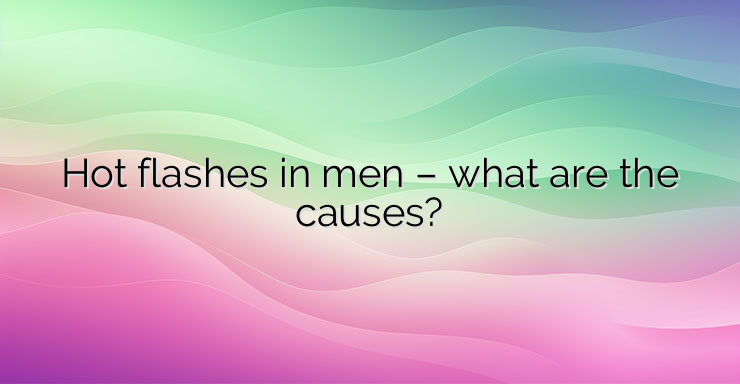Hot flashes are a sudden sensation of intense body heat that is not caused by the surrounding environment. Hot flashes are usually associated with menopause in women, but men can experience this condition as well. Women experience hot flashes from sudden fluctuations in hormone levels as they age. On the other hand, men do not experience a natural drop in testosterone levels. In fact, men over the age of 30 experience a decline in testosterone levels of less than 1-2% for each subsequent year. This decline is normal and permanent. Symptoms of hot flashes in men may include: A feeling of warmth that comes on suddenly; Profuse sweating; Skin flushing Hot flashes in men often occur as a result of a prostate cancer treatment called androgen deprivation therapy. This treatment works by limiting the production of testosterone so that it cannot stimulate the growth of cancer cells. It is estimated that up to 80% of men who undergo this form of therapy experience hot flashes. Hot flashes in men often coincide with other conditions such as erectile dysfunction, loss of libido and mood swings. These symptoms may be the result of stress, depression or anxiety. While the causes of the drop in hormone levels differ in men and women, the symptoms of hot flashes are identical in both sexes. The sensation of heat and redness is felt most intensely in the head and neck area. Profuse sweating and reddening of the skin may be accompanying symptoms. Symptoms can pass quickly, in about four minutes on average, and end with breaking out in a cold sweat. Some men and women experience these symptoms infrequently, while others may experience them up to 10 times a day. Most men stop having hot flashes within three to four months of finishing androgen deprivation therapy. Men who stay on therapy may continue to experience these symptoms. Improving diet, sleep patterns, and overall fitness can help reduce discomfort during hot flashes. Taking antidepressants and hormones can help treat hot flashes in men, according to a study. Estradiol and testosterone replacement therapy can also help with the condition. It is important to note that testosterone replacement therapy is contraindicated in men with a history of prostate cancer, as it may stimulate the growth of cancer cells. Hot flashes can be prevented by avoiding common triggers such as: Alcohol consumption; Cigarette smoking; Drinking coffee; Consumption of spicy foods Stay at high room temperatures; Wearing tight or thick clothing. Bibliography: Spetz, AC, Zetterland, EL, Varenhorst, R., & Hammar, M. Incidence and management of hot flashes in prostate cancer National Health Service. Hot Flashes in Men


Leave a Reply